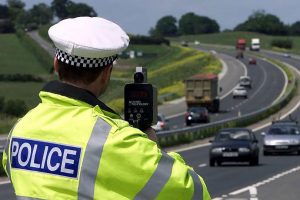With the ongoing review of the standard of proof in Solicitors Disciplinary Hearings, Steve Roberts, who heads up Richard Nelson LLP’s SRA services, takes a look at proceedings in the Solicitors Disciplinary Tribunal and asks whether any change is needed.
What is the SDT?
The Solicitors Disciplinary Tribunal is constituted under s.46 of The Solicitors Act 1974. Its primary purpose is to adjudicate on alleged breaches of the rules and regulations by which solicitors are governed. They can adjudicate upon allegations against solicitors and employees of solicitors firm (even after they have they left their role). The Tribunal is entirely independent of the Law Society and the Solicitors Regulatory Authority.
A Tribunal panel is made up of 3 members, 2 solicitor members (one of which is the chair) and 1 lay member. They are assisted by a legal clerk.
Are all allegations of misconduct dealt with by the SDT?
Most allegations of misconduct are investigated by the SRA. Even where the SRA believes there has been misconduct, the breach is not automatically referred to the SDT. There are several options available to the SRA when dealing with an allegation of misconduct:
- Decide that there is no case to answer;
- Issue a letter of Advice/Warning/Note with Regret;
- Issue a Rebuke/Reprimand;
- Impose a Fine (up to £2000);
- Refer to conduct to the Tribunal for adjudication.
If there is any finding of misconduct, they are also likely to ask for their costs to be paid.
How do cases before the SDT work?
Cases brought before the SDT are generally heard in public. There is an opportunity for the SRA and the person responding to the allegations to call witnesses and give evidence on their own behalf. Any witnesses can expect to be questioned by all parties, including the Tribunal themselves. As a professional Tribunal, they will often robustly challenge any witness who gives evidence to them.
What is the burden and standard of proof in the SDT?
As it stands, the burden of proving any allegation of misconduct falls on the SRA and they must prove their case to the criminal standard, i.e. beyond a reasonable doubt. The SRA is keen to reduce the standard of proof to that applied in civil cases which is, of course, the lower standard of the balance of probabilities.
What can the SDT do if misconduct is found?
If the SDT finds any allegation of misconduct proved, it has a number of sanctions which it can apply after hearing any submissions on mitigation:
- They can issue a Reprimand;
- The can impose an Unlimited Fine;
- They can impose restrictions on practice (for example, stopping someone holding a client account or being involved in the management of a law firm);
- They can suspend a solicitor, either for a determinate or indeterminate period of time;
- They can strike a solicitor off the Roll;
- They can impose an order under s.43 of the Solicitors Act 1974 (against an employee of a solicitor) meaning they are unable to work in any SRA regulated firm without the permission of the SRA.
- They will make an aware of costs to the SRA to cover their costs of investigation and bringing the case to the SDT.
Should the standard of proof be lessened?
The SRA takes the view that cases of misconduct should only be proved to the lower standard in order to protect the public. They point to other professional regulators who are only required to prove their cases to the civil standard, such as medical regulators.
Whilst it is accepted that there is a need for the regulator to ensure that the public is protected, it is unclear whether the reduction in the standard of proof required would serve as greater protection for the public or, alternatively, cause significant detriment to the profession as a whole.
It should be noted that, as opposed to other professionals, a solicitor who is struck off is not only stopped from holding themselves out as a solicitor but is also unable to be employed or remunerated by any SRA authorised body. For example, if a nurse is struck off, they may be able to continue to work within the healthcare profession, for example as a healthcare assistant. By contrast, a solicitor who has been struck off is unable to work for a SRA authorised body even as a receptionist or marketing assistant without the prior written consent of the SRA and such consent, if obtained, only relates to that particular employment and employer.
Another notable difference between a struck off solicitor and one who is struck off by another regulator is that a struck off solicitor will find it almost impossible to be allowed to return to the profession, whereas other professionals may be able to return to the profession where they can show a period of successful rehabilitation.
These consequences distinguish the regulation of the legal profession from that of other professions, and support contentions that the SDT should retain the requirement for allegations to be proved to the higher standard.
Further, it remains the case that, even where allegations of misconduct are not proved, the SRA continues to ask for the payment of their costs in investigating and bringing the cases before the Tribunal. The Tribunal rarely award costs to the respondent parties, even where the allegations are not proved.
It is our view that the issue of cases not being proved to the criminal standards is rare. Those cases where it is an issue are those where the SRA has failed to investigate allegations fully and properly. Given the obvious inequality of arms between the SRA and respondents, it seems that the answer to any SRA concerns would be to ensure cases of alleged disciplinary breaches are investigated properly and only presented to the SDT by way of clearly formulated allegations where clear evidence exists rather than rely upon a reduction in the burden of proof.
There is a real concern that any reduction in the standard of proof may lead to a reduction in the thoroughness of any investigation conducted by the SRA and/or an increase in the number of improperly prepared cases presented to the SDT.




















